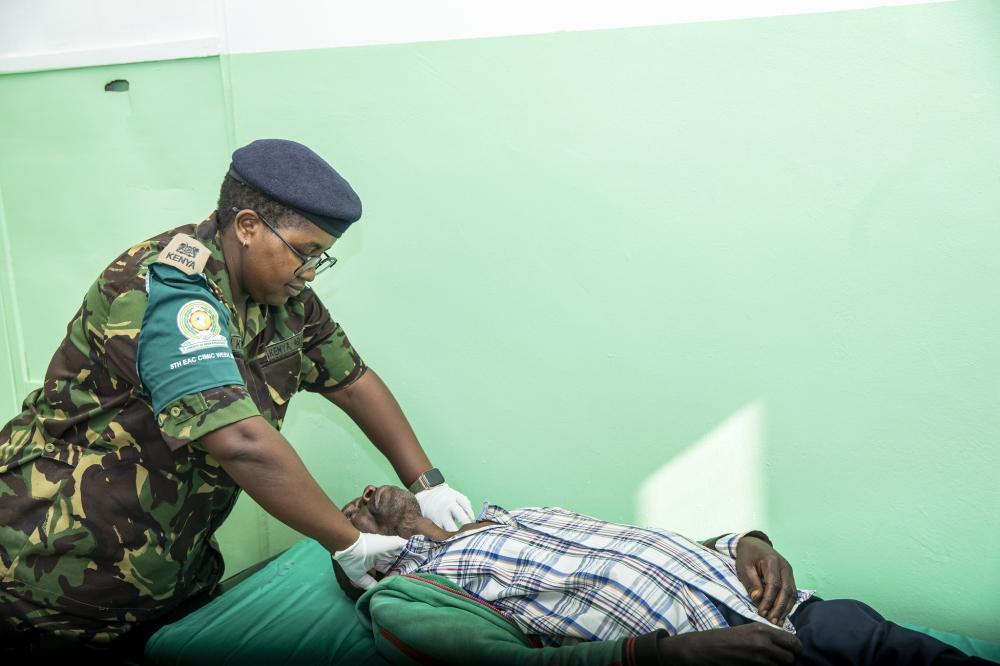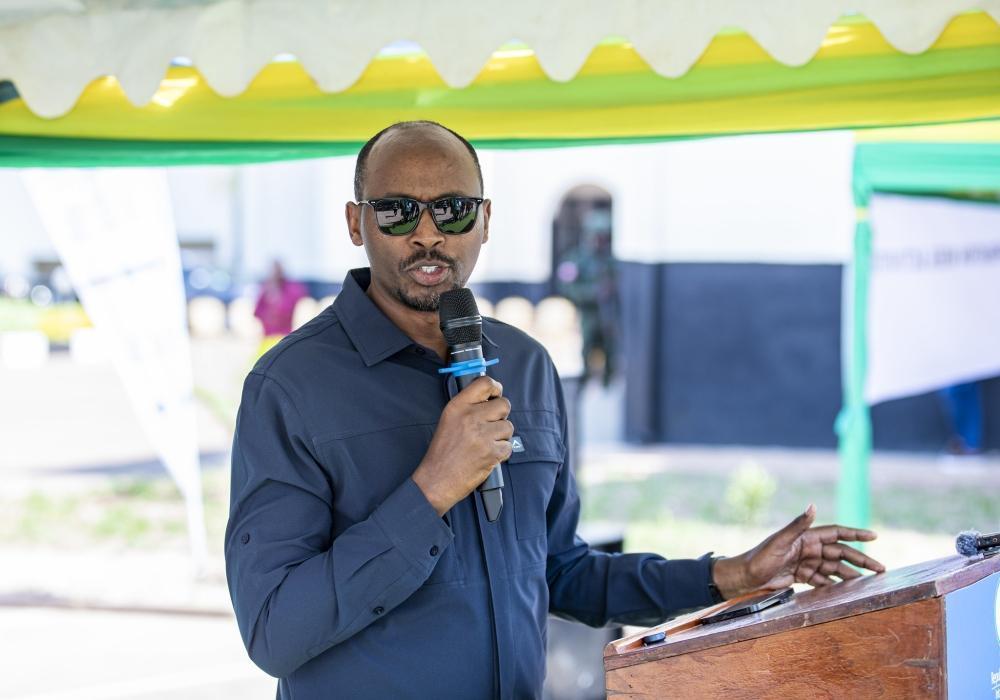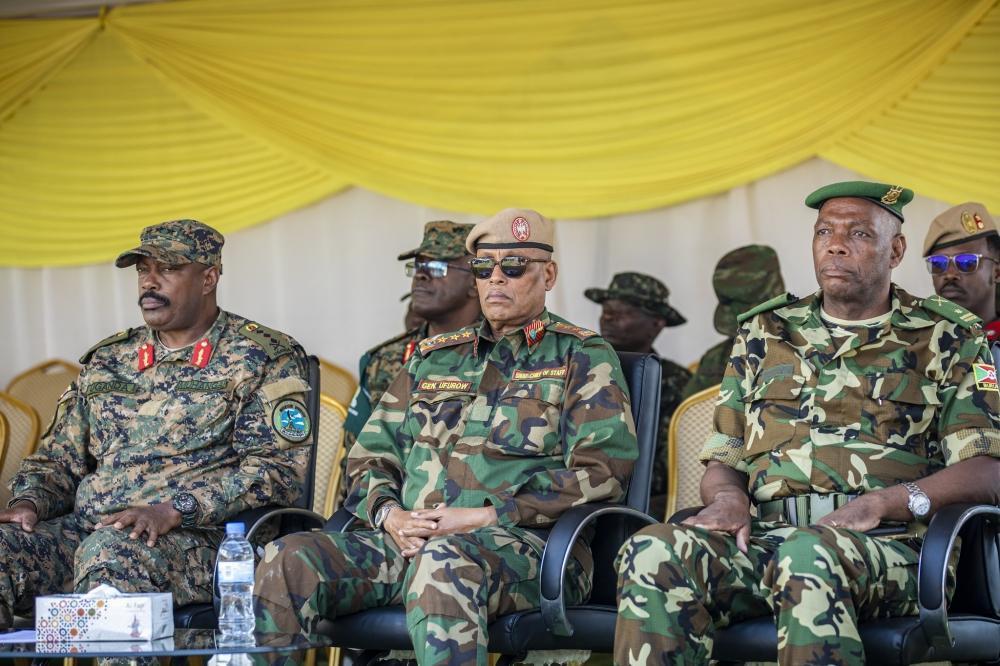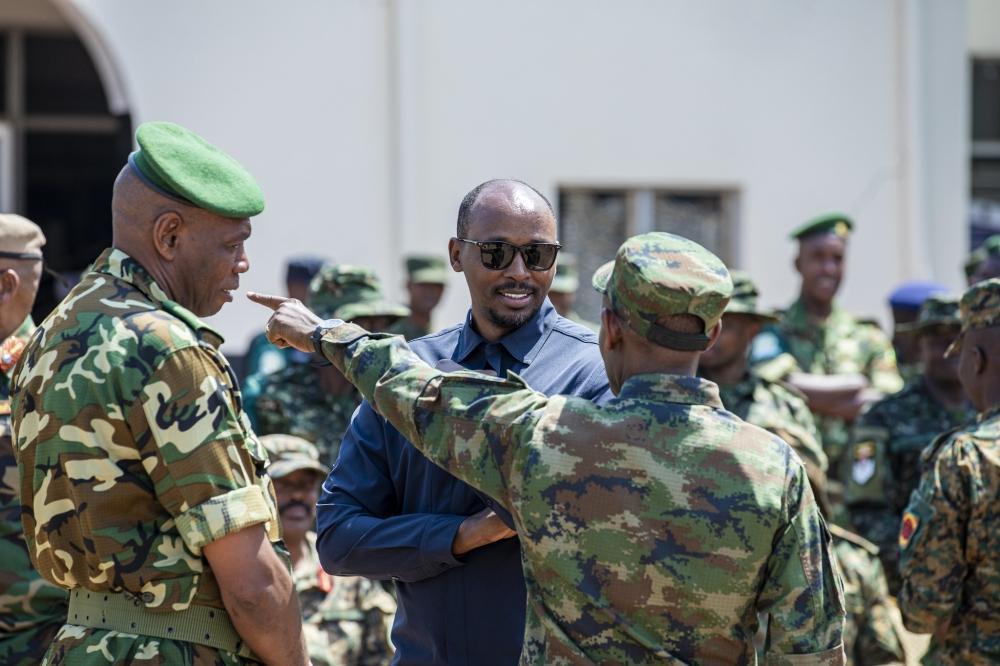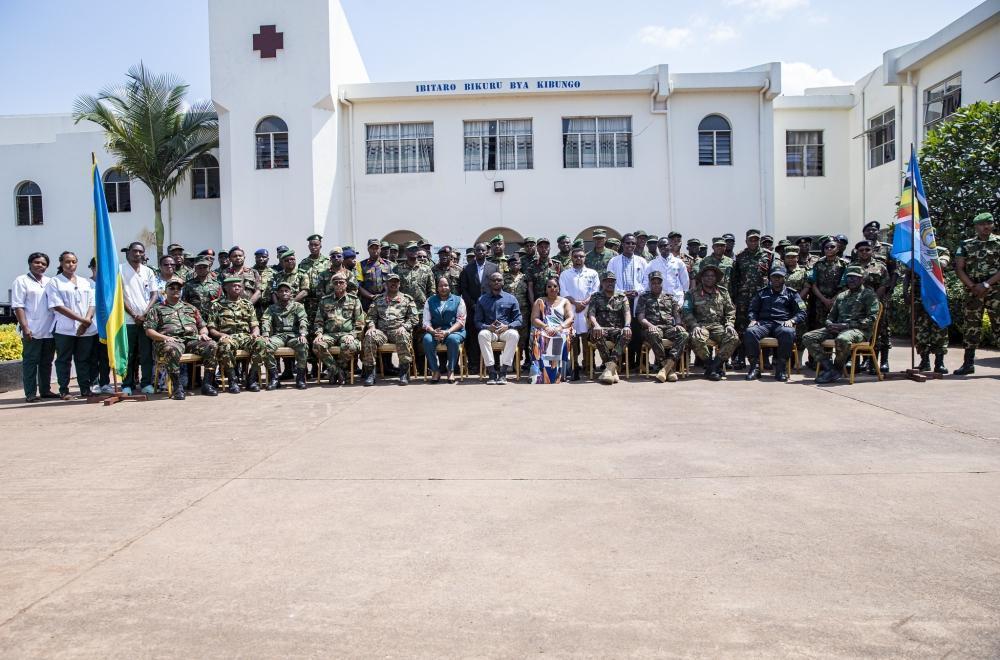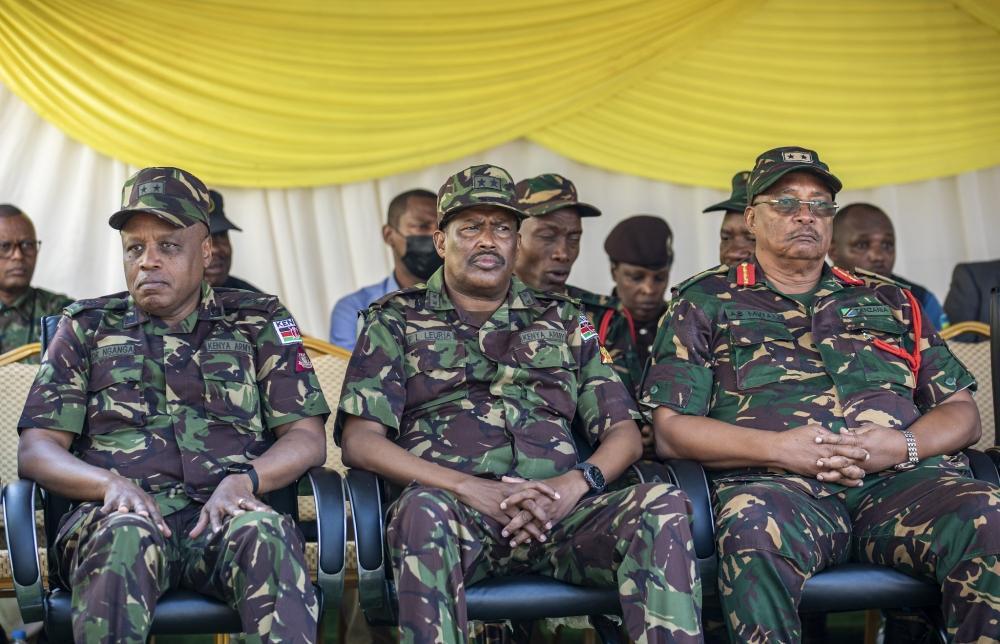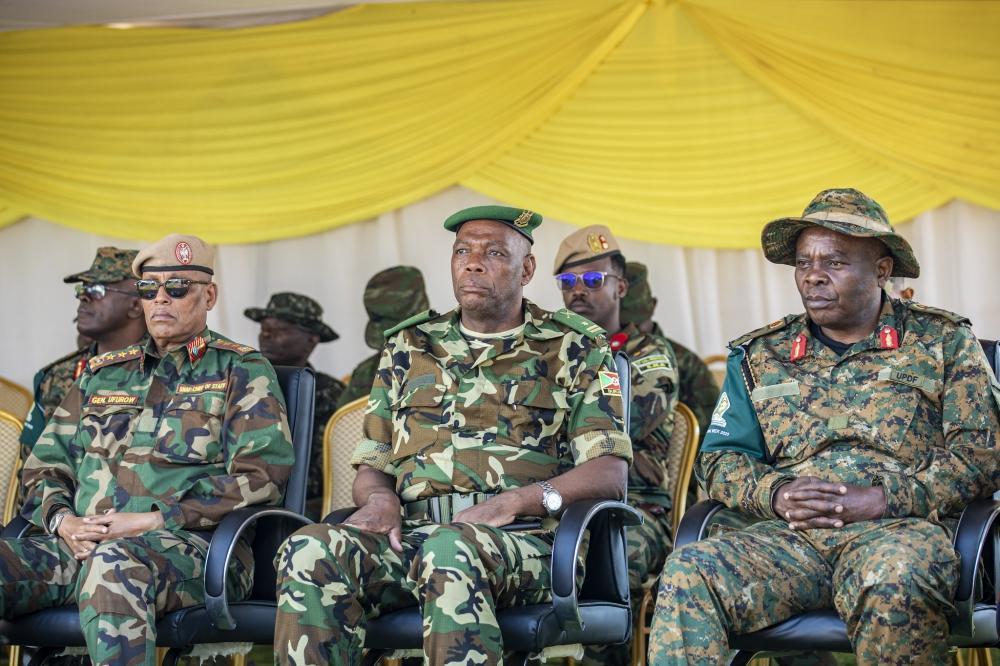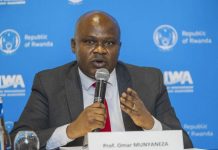Africa-Press – Rwanda. More than 40,000 patients across Rwanda received free medical treatment during the fifth East African Community (EAC) Armed Forces Civil-Military Cooperation (CIMIC) week, which concluded on July 3 at Kibungo Hospital in Ngoma District.
The week-long outreach was part of the Defence and Security Citizen Outreach Programme 2025 and brought together armed forces from Rwanda, Kenya, Uganda, Burundi, Tanzania, and Somalia.
Beyond healthcare, the initiative focused on improving access to essential services such as clean water, electricity, and infrastructure development.
Medical services were offered in a wide range of specialties, including internal medicine, general surgery, orthopedic surgery, gynecology and obstetrics, pediatrics, ENT (ear, nose, and throat), dermatology, ophthalmology, psychiatry, and dentistry.
The Minister of Health Dr Sabin Nsanzimana speaks at the event
Speaking at the closing ceremony, Minister of Health Dr. Sabin Nsanzimana praised the outreach’s scale and effectiveness.
“This is a big number compared to our usual capacity. We often have limited numbers of doctors and many patients. But when the army steps in, services are delivered faster and reach citizens who have been waiting for a long time—even those with appointments scheduled months ahead,” he said.
Dr. Nsanzimana highlighted that the outreach helped reduce the backlog of patients needing specialised care, especially in remote areas. He added that more than 70 houses were built for vulnerable families, over 13 bridges constructed, and at least 10 nursery schools established. Solar-powered electricity was also extended to several off-grid communities.
“These contributions go far beyond medicine—they directly improve the living conditions of our people,” he said.
To build on the momentum, the Minister announced that medical services would be extended by another two weeks. The initiative also ties into Rwanda’s Liberation Day celebrations on July 4.
“Liberation is not just about military victory. It’s also about freeing people from disease, poverty, and everything else that undermines their wellbeing. That’s why the army’s involvement is so important—because this is about working together to build a healthier and stronger nation,” Dr. Nsanzimana added.
Residents like Jean Baptiste Habiyakare from Ngoma District shared how the initiative made a difference in their lives. After suffering from chronic constipation for nine months without a proper diagnosis, he finally received specialised care.
“I used to get pills with no clear diagnosis. But the EAC armed forces provided real care. They used radiography and diagnosed me accurately—all for free. The process was much faster. Now, I’ve started treatment and have hope,” he said.
Veronica Nduva, the Secretary General of the EAC, stressed the importance of CIMIC initiatives in promoting regional cooperation and development.
“This program shows how the military can support community welfare in practical ways. Each country brought something unique—some brought tanks, others roofing tiles, solar panels, or furniture—all contributing to the wellbeing of communities,” she said.
She also noted the region’s ongoing challenges, including natural disasters, disease outbreaks, insecurity, and the spread of small arms.
“It is crucial that the EAC develops robust and collective capacity to respond to these emergencies. Our unity, peace, and stability are the foundation for protecting the common interests of East Africans.”
The fifth East African Community (EAC) Armed Forces Civil-Military Cooperation (CIMIC) week concluded on July 3 at Kibungo Hospital in Ngoma District.
The programme brought together armed forces from Rwanda, Kenya, Uganda, Burundi, Tanzania, and Somalia.
The week-long outreach was part of the Defence and Security Citizen Outreach Programme 2025.

For More News And Analysis About Rwanda Follow Africa-Press

